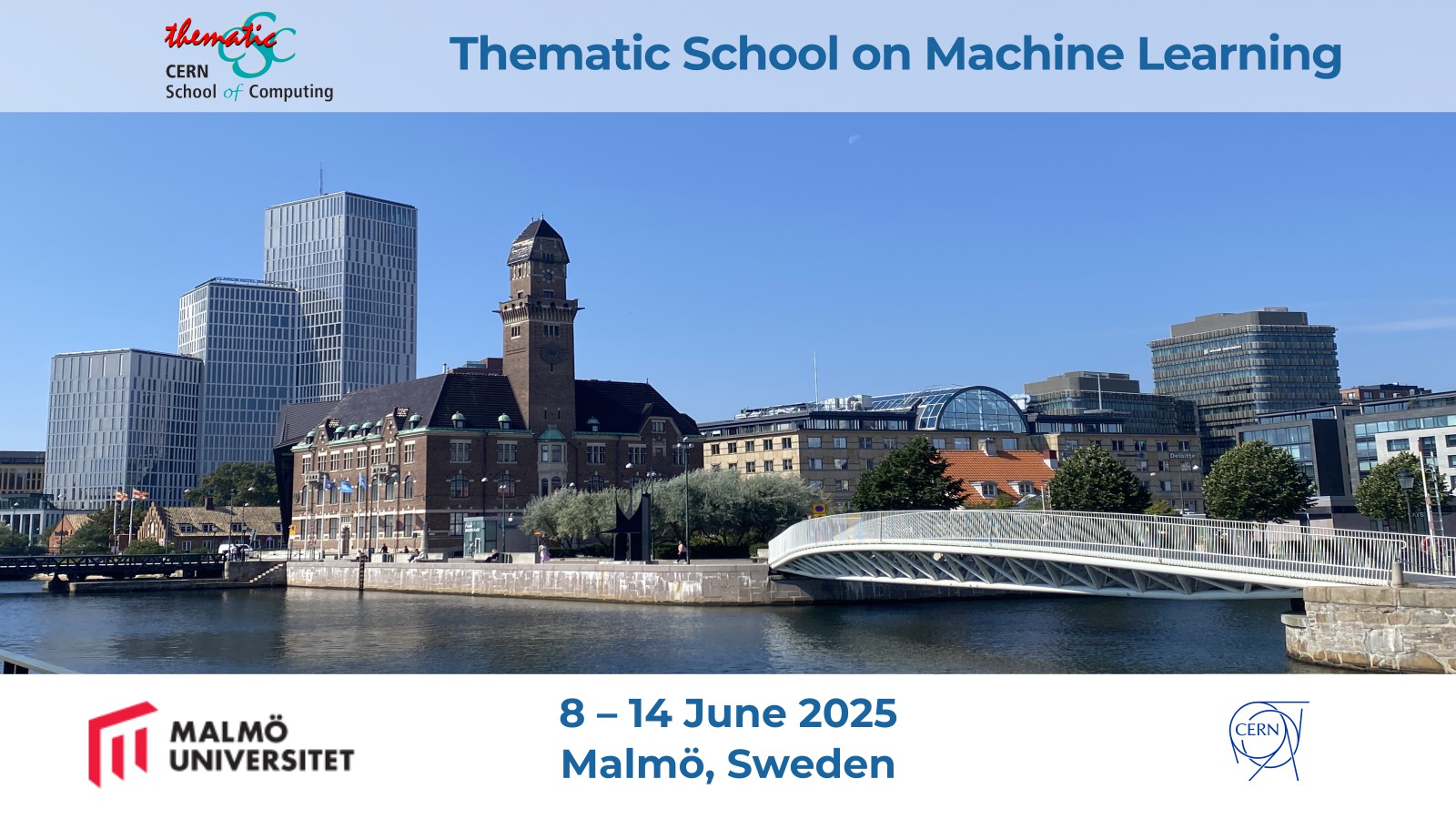Thematic CERN School of Computing on Machine Learning 2025
Hörsal B2
Niagara Building
The 17th Thematic CERN School of Computing (tCSC Machine Learning 2025) will take place on June 8-14.
The school will focus on the theme of Machine Learning and Artificial Intelligence applied to Data Analysis and Accelerator Technology. The programme will offer 22 hours of lectures and hands-on exercises, as well as student presentation sessions.
This school is organized by CERN in collaboration with the Computer Science Department at Malmö University. The school will take place in Malmö, Sweden, and be hosted in the Niagara building of the University in the city center of Malmö. The school is co-financed by Region Skåne.
The school is proposed to people working in academia and research institutes, who as part of their jobs use or want to explore using Machine Learning techniques. The school will cover the basics of Machine Learning before moving to advance state of the art techniques.
This school is aimed at postgraduate (i.e. minimum of Bachelor degree or equivalent) students, engineers and scientists with a few years' experience in particle physics, in computing, or in related fields. We welcome applications from all countries and nationalities.
Important dates 2025
- 24 January, application opens
- March 12, application closes
- March 26, invitations sent to selected students
- April 23, participation fee deadline

Photo: CSC Organisers